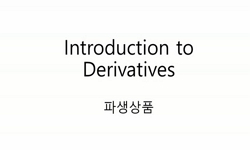In the Project Finance (“PF”), it is ordinary that the sponsors establish legally distinct economic entities(project company: “PC”), in order to develop, manage, and finance the project. A PC borrows money on ‘a limited or non-recourse’ ba...
http://chineseinput.net/에서 pinyin(병음)방식으로 중국어를 변환할 수 있습니다.
변환된 중국어를 복사하여 사용하시면 됩니다.
- 中文 을 입력하시려면 zhongwen을 입력하시고 space를누르시면됩니다.
- 北京 을 입력하시려면 beijing을 입력하시고 space를 누르시면 됩니다.

프로젝트 파이낸스와 구조화금융 = Project Finance and Structured Finance -The essentials of Project Finance and its structuring-
한글로보기https://www.riss.kr/link?id=A99569891
- 저자
- 발행기관
- 학술지명
- 권호사항
-
발행연도
2012
-
작성언어
-
- 주제어
-
KDC
360
-
등재정보
KCI등재
-
자료형태
학술저널
-
수록면
459-498(40쪽)
- 제공처
- 소장기관
-
0
상세조회 -
0
다운로드
부가정보
다국어 초록 (Multilingual Abstract)
On the other hand, a loan from a bank and a receivable from a construction company arising out of PF, can be ‘structured’ to raise funds from its assets. In a securitization process, a form of Structured Finance(“SF”), a company deconstructs itself by separating certain types of liquid assets, and use these assets to raise funds in the capital markets.
One of the main objectives of the Asset-Backed Securitization Act(“ABS” Act) was to introduce ABS to the domestic economy swiftly. Nonetheless, it could be argued that the Act has not fully corresponded to our legal system, due to its origin (U.S.). There are several legal issues surrounding ABS and, the most important one must be the legal aspect with regard to the ‘true sale’ of the assets (receivables). The ‘true sale’ has been designed to prevent the assets (obligations) transferred to the special purpose vehicle (hereinafter “SPV”), from the bankruptcy of the transferor, which is considered a sale of the obligation, despite the fact that the transferor, after the transfer, went into the bankruptcy. As for ‘sale asset-backed securitization transactions’ in the ABS, as stated in article 13 of the Act, there should be some conditions and requirements to be satisfied. However, its requisites are so obscure that a related party would be confused hence had limited its transaction. In this regard, the amendment of the ABS Act is strongly recommended in order to strengthen the progressive ABS markets in Korea.
A derivatives transaction, an another form of SF, is a bilateral contract or payments exchange agreement, value of which is derived from the value of an underlying asset, underlying reference rate or index. With the enactment of Capital Market and Financial Investment Business Act(“CMFIB” Act), the foundation of derivatives transactions in Korea has been established. Specifically, the article 3 (2) of CMFIB classifies the ‘financial investment instruments’ under paragraph (1) into “Securities” and “Derivatives”. Generally speaking, the credit derivatives enable an investor to receive a return, which is calculated by reference to the credit performance of a specified entity (“the reference entity”). Needless to say, the most common Credit Derivatives Transactions are Credit Default Swaps (“CDS”), Credit-Linked Notes (“CLN”), Collateralized Debt Obligations(“CDO”), and synthetic CDO. It should be noted that as derivatives markets have rapidly grown since the last decade, some relevant legal and economical issues have emerged accordingly. Many people believe that derivative instruments are complex, opaque, difficult to manage, and more risky than other traditional financial products. As a result, the sub-prime crisis in the U.S. had turned the world economy into turmoil. Therefore, the U.S. as well as EU had to enact various statutes to supervise and control the derivative transactions in order to protect the consumers. Following such a move, Korea also has stepped in regulating the derivative transactions from a customer’s perspective.
In the Project Finance (“PF”), it is ordinary that the sponsors establish legally distinct economic entities(project company: “PC”), in order to develop, manage, and finance the project. A PC borrows money on ‘a limited or non-recourse’ basis from the banks on the condition that they rely on the cash flow of the project rather than on the assets or general credit of the sponsors for the loan repayment. However, the domestic PF in a field of real estate development highly relies on the credit and capacity of construction companies, placing all the risks arising out of the project on the sponsors. From an international perspective, the enactment of a special Act (such as ‘Project Finance Company Act’) is recommendable and necessary in order to increase basic standards and requirements for the domestic PF to match the international standards.
On the other hand, a loan from a bank and a receivable from a construction company arising out of PF, can be ‘structured’ to raise funds from its assets. In a securitization process, a form of Structured Finance(“SF”), a company deconstructs itself by separating certain types of liquid assets, and use these assets to raise funds in the capital markets.
One of the main objectives of the Asset-Backed Securitization Act(“ABS” Act) was to introduce ABS to the domestic economy swiftly. Nonetheless, it could be argued that the Act has not fully corresponded to our legal system, due to its origin (U.S.). There are several legal issues surrounding ABS and, the most important one must be the legal aspect with regard to the ‘true sale’ of the assets (receivables). The ‘true sale’ has been designed to prevent the assets (obligations) transferred to the special purpose vehicle (hereinafter “SPV”), from the bankruptcy of the transferor, which is considered a sale of the obligation, despite the fact that the transferor, after the transfer, went into the bankruptcy. As for ‘sale asset-backed securitization transactions’ in the ABS, as stated in article 13 of the Act, there should be some conditions and requirements to be satisfied. However, its requisites are so obscure that a related party would be confused hence had limited its transaction. In this regard, the amendment of the ABS Act is strongly recommended in order to strengthen the progressive ABS markets in Korea.
A derivatives transaction, an another form of SF, is a bilateral contract or payments exchange agreement, value of which is derived from the value of an underlying asset, underlying reference rate or index. With the enactment of Capital Market and Financial Investment Business Act(“CMFIB” Act), the foundation of derivatives transactions in Korea has been established. Specifically, the article 3 (2) of CMFIB classifies the ‘financial investment instruments’ under paragraph (1) into “Securities” and “Derivatives”. Generally speaking, the credit derivatives enable an investor to receive a return, which is calculated by reference to the credit performance of a specified entity (“the reference entity”). Needless to say, the most common Credit Derivatives Transactions are Credit Default Swaps (“CDS”), Credit-Linked Notes (“CLN”), Collateralized Debt Obligations(“CDO”), and synthetic CDO. It should be noted that as derivatives markets have rapidly grown since the last decade, some relevant legal and economical issues have emerged accordingly. Many people believe that derivative instruments are complex, opaque, difficult to manage, and more risky than other traditional financial products. As a result, the sub-prime crisis in the U.S. had turned the world economy into turmoil. Therefore, the U.S. as well as EU had to enact various statutes to supervise and control the derivative transactions in order to protect the consumers. Following such a move, Korea also has stepped in regulating the derivative transactions from a customer’s perspective.
목차 (Table of Contents)
- Ⅰ. 서론
- Ⅱ. 프로젝트 파이낸스(PF)의 본질과 현황
- Ⅲ. 구조화금융(SF)
- Ⅳ. 결론
- 〈참고문헌〉
- Ⅰ. 서론
- Ⅱ. 프로젝트 파이낸스(PF)의 본질과 현황
- Ⅲ. 구조화금융(SF)
- Ⅳ. 결론
- 〈참고문헌〉
- 〈Abstract〉
동일학술지(권/호) 다른 논문
-
손해배상금 지급채무에 대한 이자 부가의 의미와 기산 시기
- 한국비교사법학회
- 최우진(Choi, Woo Jin)
- 2012
- KCI등재
-
- 한국비교사법학회
- 김병두(Kim byungdu)
- 2012
- KCI등재
-
- 한국비교사법학회
- 李鸿
- 2012
- KCI등재
-
- 한국비교사법학회
- 윤석찬(Yonn, Seok-Chan)
- 2012
- KCI등재




 KCI
KCI 스콜라
스콜라







